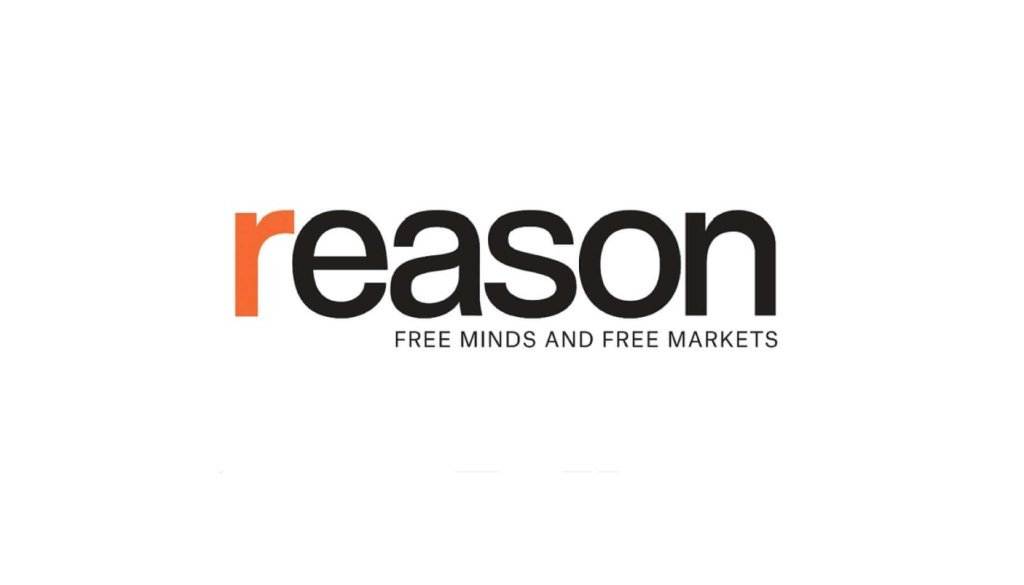How the FCC’s ‘Warrior for Free Speech’ Became Our Censor in Chief
When Donald Trump announced the appointment of Brendan Carr to the top spot at the Federal Communications Commission, he called Carr “a warrior for Free Speech.” Carr, in turn, pledged to “dismantle the censorship cartel and restore free speech rights for everyday Americans.” But Carr’s statements and actions both before and since taking on his new role indicate someone all too comfortable wielding government power against media companies for politically disfavored speech.
“I think he’s the most anti–free speech FCC chair that we’ve had, as long as I can remember,” says Techdirt founder Mike Masnick. “And I think that’s a little terrifying, especially as he is presented by himself, Donald Trump, and the media as being a free speech warrior….Yet, over and over again, we see that he’s constantly trying to attack and suppress and punish speech.”
Big Tech Crackdown
Consider Carr’s November 2024 letter to the CEOs of Alphabet (which owns Google and YouTube), Apple, Meta (which owns Facebook), and Microsoft. “Americans have lived through an unprecedented surge in censorship,” Carr wrote. He deemed these companies part of a “censorship cartel” that had “silenced Americans for doing nothing more than exercising their First Amendment rights.”
Some social media companies did indeed work with the Biden administration to suppress online speech. But Carr did not ask about their acquiescence to government censorship requests: “I am writing to obtain information about your work with one specific organization—the Orwellian named NewsGuard.” He wanted this information “to help inform FCC action.”
NewsGuard is a private company that employs journalists to rate the accuracy and reliability of news outlets on a scale of 0–100. (It gave Reason a perfect score “for the highest adherence to journalistic practice.”) It markets the service to advertisers, but users can also download software that displays the ratings in their web browser. In his letter, Carr added that NewsGuard “has partnered with social media companies.”
NewsGuard is “part of the broader censorship cartel,” Carr wrote, “leveraging its partnerships with advertising agencies to effectively censors [sic] targeted outlets.” On X, Carr later wrote that NewsGuard “operates for the purpose of censoring viewpoints that fall outside an approved narrative. Its conduct has also led to collusive ad boycotts, which may violate antitrust and competition laws.”
Carr’s argument was premised on a mistaken understanding of both the target company’s practices and the First Amendment. “Neither of the social media companies (Alphabet and Meta) to which you wrote work with us at all,” NewsGuard cofounders and co-CEOs Steven Brill and Gordon Crovitz wrote in reply. Further, they added, “Our work does not involve any censorship or blocking of speech.”
More to the point, NewsGuard’s rating of news outlets, and a tech company’s decision to allow their software into its app store, are completely within the bounds of protected speech. Even openly calling for advertiser boycotts would be well within a speaker’s rights. Unless government coercion is involved either explicitly or implicitly, it’s not an act of censorship that violates the First Amendment.
Carr’s letter also targeted tech companies by threatening to revoke legal liability protections enshrined in federal law. Section 230 of the Communications Act establishes that websites cannot be held civilly liable for content posted by others, nor for actions “voluntarily taken in good faith to restrict access” to content they find “objectionable.”
But in his letter, Carr cited the law to threaten the tech CEOs. “As you know, Big Tech’s prized liability shield, Section 230, is codified in the Communications Act, which the FCC administers,” he wrote. “As relevant here, Section 230 only confers benefits on Big Tech companies when they operate, in the words of the statute, ‘in good faith’….But NewsGuard’s own track record raises questions about whether relying on the organization’s products would constitute ‘good faith’ actions within the meaning of Section 230.” He later added: “Any tech company that continues to rely on NewsGuard is putting its Section 230 protections in serious jeopardy.”
Carr gets it backward: Section 230 does not require “good faith” as a prerequisite for liability protection. Rather, it states that websites bear no civil liability for things that others post, nor for moderation decisions made “in good faith.” They don’t forfeit these protections simply by doing one of these the wrong way.
Carr also penned a chapter about the FCC for the Heritage Foundation’s Mandate for Leadership, popularly known as Project 2025. Under the section “Reining In Big Tech,” Carr wrote, “The FCC should issue an order that interprets Section 230 in a way that eliminates the expansive, non-textual immunities that courts have read into the statute” and “remind courts how the various portions of Section 230 operate.” Specifically, Carr said the FCC should “clarify” the interpretation of the statute to “appropriately limit the number of cases in which a platform can censor with the benefit of Section 230’s protections.”
Carr’s interpretation doesn’t hold up. “Section 230 itself contains no mention of FCC rulemaking authority to define the bounds of the immunity it provides,” Lawrence J. Spiwak wrote in November for the Federalist Society. “Section 230, on its face, simply appears to provide digital platforms with an affirmative defense in the case of civil litigation.”
Carr cited an October 2020 memo by FCC then-General Counsel Thomas Johnson Jr. to say the FCC does have the authority to interpret Section 230. That authority, Johnson argue
Article from Reason.com

The Reason Magazine website is a go-to destination for libertarians seeking cogent analysis, investigative reporting, and thought-provoking commentary. Championing the principles of individual freedom, limited government, and free markets, the site offers a diverse range of articles, videos, and podcasts that challenge conventional wisdom and advocate for libertarian solutions. Whether you’re interested in politics, culture, or technology, Reason provides a unique lens that prioritizes liberty and rational discourse. It’s an essential resource for those who value critical thinking and nuanced debate in the pursuit of a freer society.




